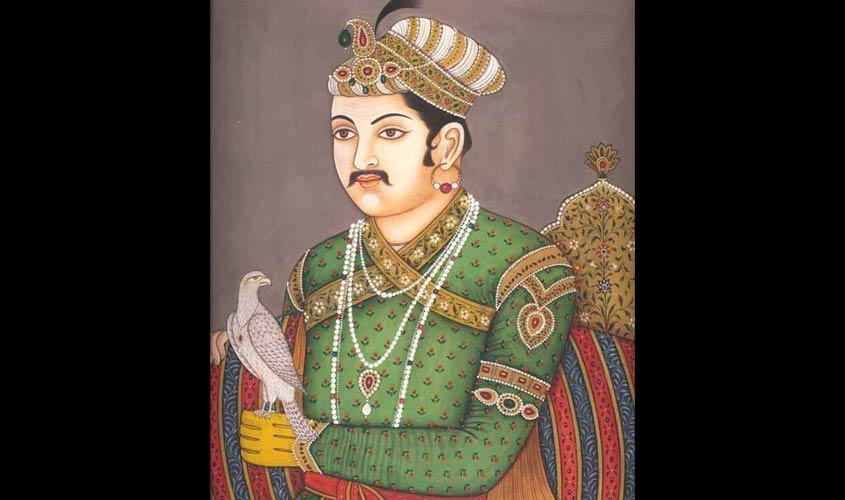This was achieved through systematic planning for months and deployment of large contingent of the army to Kashmir.
Some insights from history can help in understanding the current political blitzkrieg in Kashmir. His Majesty’s Voice, Abu’l Fazl’s account of late 16th-century conquest of Kashmir under Mughal emperor Akbar gives a veritable sense of déjà vu, no matter from which perspective one looks at the onslaught for subjugating Kashmir by a relentlessly centralising Indian juggernaut. The title of the celebratory chapter of the imperial ideologue’s Akbarnama, read together with detailed annexures in A’in-i-Akbari, announces violent setting up of a major milestone in the fast expanding Mughal power: “The conquest of the flourishing country of Kashmir through the fortune of the Shahinshah.”
After briefly recounting the history of political violence in Kashmir for over 70 years, which led to frequent massacres and loss of human resources for which there is no lamentation, Abu’l Fazl writes: “It is an old rule that when good intention and choice action meet together in a seeker after fortune, almighty God grants him the easy realisation of every wish that he may entertain, and even spiritual and physical successes for which he has framed no wish rise up and serve those favourites of fortune who possess those two attributes (good intention and choice action). Accordingly, the circumstances of the world’s lord tell of this, and this book in some measure recites the fact of the conquest of this country as a new instance.”
Understandably, Abu’l Fazl does not provide details of horrendous violence and yet mentions different ways in which the “wicked” and “foolish” opposition had to be neutralised, either through winning over “untrustworthy” local collaborators or deploying massive military resources to crush any resistance. According to him, “the soldiers prevailed over every house, and in every corner there were hot encounters (with Mughal forces literally taking over the rooftop of every house to ensure complete acceptance of the fait accompli)”. This was achieved through systematic planning for months, followed by massive march and deployment of large contingent of the army through all the roads to Kashmir. Abu’l Fazl relates: “Whoever knows a little about the ravines of the road to it will understand that no thought of strange conquest troubled the minds (of the inhabitants). On all four sides, mountains which raise their heads to heaven act as sentinels. Though there are six or seven roads, yet a large army cannot march rapidly by them, as they can also be easily blocked.”
Once the entire countryside, towns and historic seat of power, divinely created city of Srinagar, was taken over, amidst reports of attacks from those still resisting and their swift and merciless shooting down, the Mughals needed legitimacy for their conquest and rule. Writing after the conquest was secured, Abu’l Fazl notes: “At the present day that a great part of the army in Kashmir has been withdrawn, 4,892 cavalry and 92,400 infantry remain deployed.” This is a considerable number; yet it could not have sustained the conquest if it were not projected as a legitimate continuation of Kashmir’s fabled four millennia of political achievements, with some aberrations in between. Thus, recourse was made to invoke the region’s vibrant historical traditions, resources of powerful pundits with their own traditions going back to mythical ancient past, and legitimacy sought from Muslim holy-men; the name of much-respected 15th-century Sultan, Zainul Abidin, was also thrown in.
The author says: “When the Imperial standards were for the first time borne aloft in this garden of perpetual spring, a book called Rajatarangini written in Sanskrit containing an account of the princes of Kashmir during a period of some four thousand years
The enchantment with “heavenly” crafted geography of Kashmir (mountains, rivers, lakes, gardens, fruits and flowers symmetrically presenting it as an attractive paradise on earth) was also frequently referred to. All these were now politically secured, minus its condemned people, mainly Muslims; “the respectable class of pundits”, however, will be part of the new scheme of things. Conforming to the ruthless nature of the conquest, one of the first measures was to ensure the control of affairs directly from the centre, with orders for collected revenue to be sent to imperial treasury. Abu’l Fazl concludes with typical chicanery: “Although one-third had been for a long time the nominal share of the State, more than two shares were actually taken, but through His Majesty’s justice, it has been reduced to one half”!

